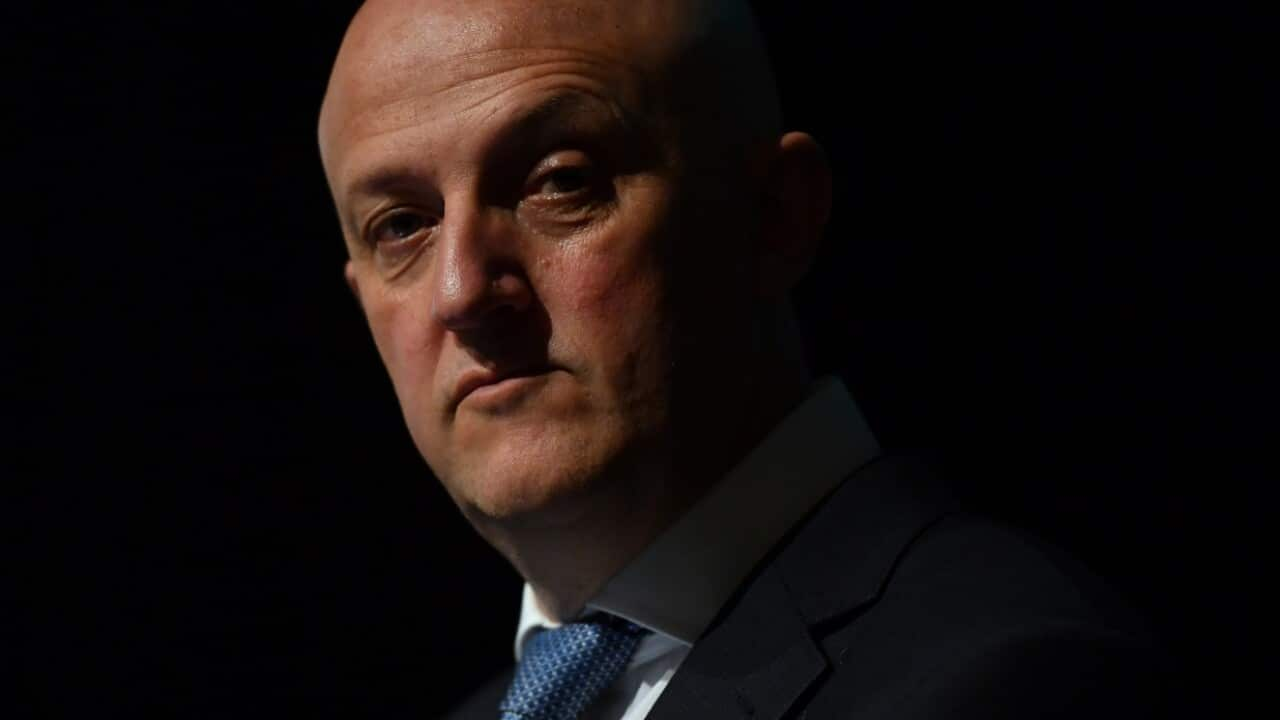KEY POINTS:
- ASIO boss Mike Burgess says journalists and potentially judiciary members have been targeted by foreign spies.
- Mr Burgess has also revealed to plans by foreign governments to harm targets living in Australia.
- The domestic terrorism threat level remains at 'possible' in Australia.
Foreign agents have tried to recruit senior Australian journalists and potentially members of the judiciary, the nation's top spy boss has warned.
ASIO director-general Mike Burgess has also revealed the agency foiled two plots by foreign governments to harm perceived dissidents living in Australia, including a plan to lure a human rights activist overseas where they could be "disposed of".
Delivering his annual threat assessment on Tuesday evening, Mr Burgess warned unprecedented levels of spying meant ASIO was busier than at any time in its history, including during the Cold War, the post-9/11 period, and the height of the self-proclaimed Islamic State's (IS) so-called caliphate.
Mr Burgess warned the countries engaging in espionage in Australia were varied, including authoritarian regimes but also nations "considered friends" of Canberra.
He revealed a small number of Australian judicial figures had been subjected to "suspicious approaches". Though ASIO was yet to conclusively rule they had been carried out by foreign intelligence services, he warned spies sought insights into court cases relevant to their governments.

Home Affairs Minister Clare O'Neil last week revealed a foreign interference plot driven by Iran. Source: AAP / James Ross
Journalist plot
Mr Burgess also detailed one foiled plot, in which a foreign intelligence service attempted to use an Australian-born "lackey" to approach "senior journalists" with the offer of a fully-paid study tour overseas.
The "lackey" drew up a list of influential journalists and, had the plan gone ahead, would have introduced them to apparent local officials, who were actually disguised spies enjoying a "home-field advantage", Mr Burgess said.
"Almost certainly, the journalists’ phones, laptops, and tablets would also have been targeted. If left unattended, even in a locked hotel room safe, the spies would have downloaded data and potentially installed malware giving them ongoing access to contacts, stories, emails, and calls," he said.
"ASIO intervened before the study tour was arranged, and no harm was done."

Critics of foreign regimes, including Iran, have been targeted in Australia. Source: AAP / AP
Within the last year, ASIO had also uncovered a major spy network operating in Australia, including some agents who had been planted years prior, he said.
"I’ve previously revealed how we removed a ‘nest’ of spies. I’ll refer to this latest case as the ‘hive’ of spies… because it was bigger and more dangerous than the nest," he said.
"They were good, but ASIO was better. We watched them. We mapped their activities. We mounted an intense and sustained campaign of operational activity. We confronted them. And working with our partners, we removed them from this country, privately and professionally.
"The hive is history."
'Disposed of'
Home Affairs Minister Clare O'Neil last week , which included the monitoring of an Australian resident whose home was broken into.
And Mr Burgess warned ASIO was aware of multiple spies from multiple countries, who were seeking to leverage relationships with government and non-government figures to obtain the personal details of critics of overseas regimes.
In two plots uncovered and prevented by the agency, separate foreign intelligence services planned to physically harm targets living in Australia, each considered a dissident.
"In one case, the intelligence service started monitoring a human rights activist and plotted to lure the target offshore, where the individual could be – quote – 'disposed of'. In another, a lackey was dispatched to locate specific dissidents and – quote – 'deal with them'," Mr Burgess said.
"This is what foreign interference can become if left unchecked. This is foreign interference at its most brutal. It is unacceptable and untenable. It is an assault on our sovereignty, an affront to our freedoms.”

The domestic terrorism threat level remains as "possible" in Australia.
'Cash before country'
Mr Burgess also confirmed ASIO had for years been tracking former Department of Defence insiders willing to sell military training and nous to foreign governments, including to repressive regimes. While the agency was able to bar some collusion, in other cases legal ambiguities had prevented it from intervening, he said.
"While the overwhelming majority of our veterans are Australian patriots in every sense, a small but concerning number are willing to put cash before country," he said.
"These individuals are lackeys, more ‘top tools’ than ‘top guns’. Selling our warfighting skills is no different to selling our secrets."
ASIO had trawled social media, finding 16,000 Australians publicly declaring they had a security clearance, and 1,000 revealing they had worked in the intelligence community.
"I appreciate people want to sell themselves to prospective employers ... [but] these people may as well add 'high-value target' to their profiles," he said.
Mr Burgess also revealed there were fewer extremists intent on carrying out an attack onshore than in 2014, at the peak of IS' powers.
The domestic terrorism threat level remained "possible" in Australia, but Mr Burgess said it was "almost guaranteed" to rise again at some stage.
In 2022 while working at another outlet, the author of this article took part in the thisisFINLAND Foreign Correspondents’ Programme funded by the government of Finland.

